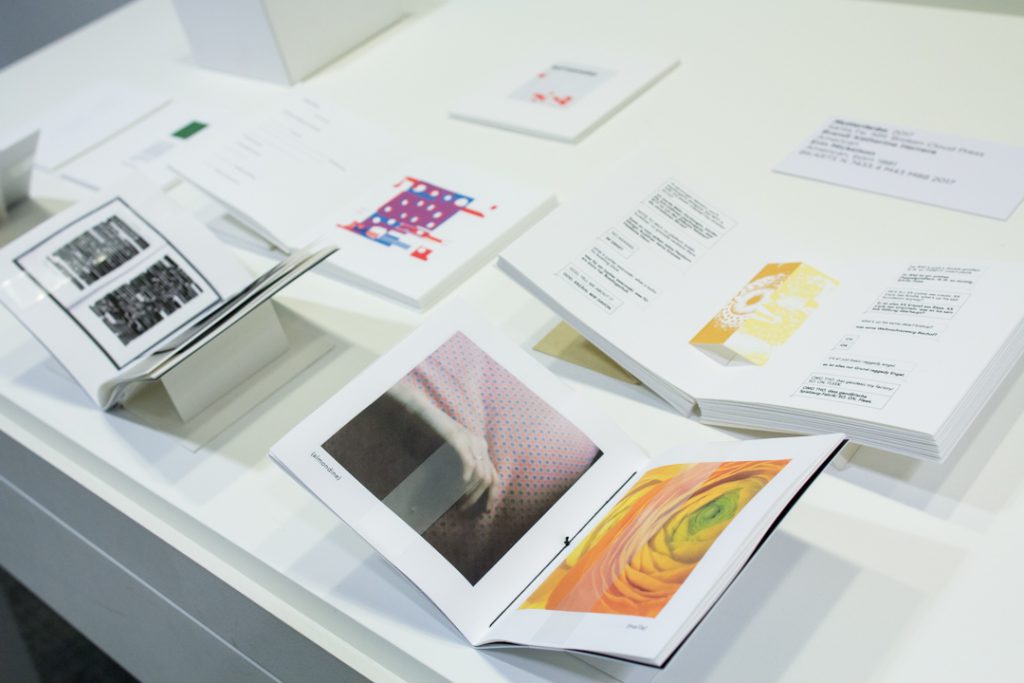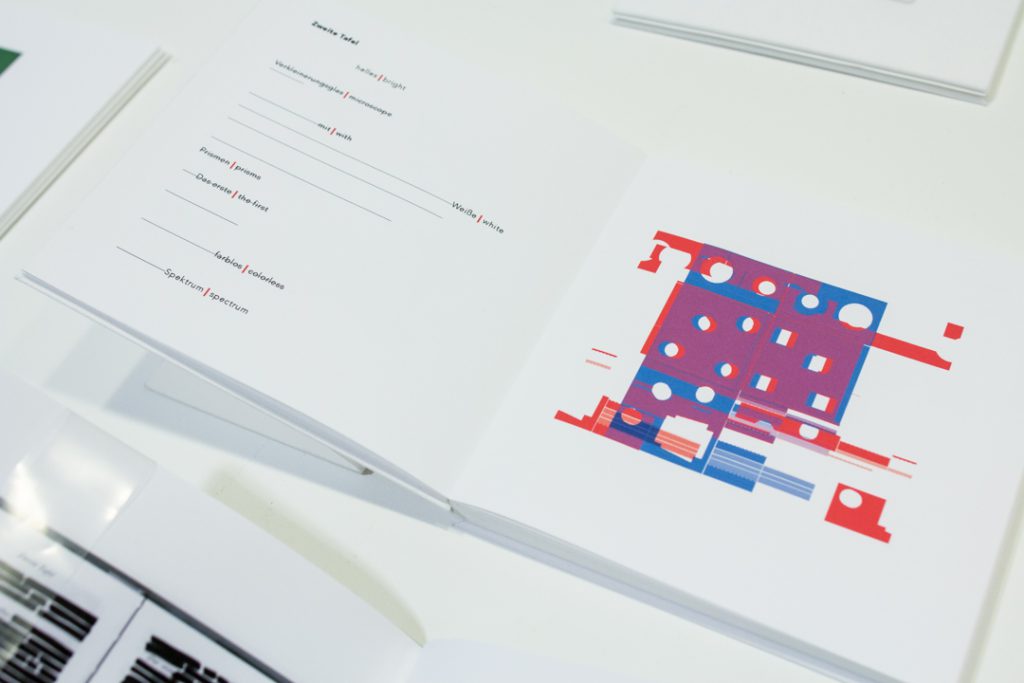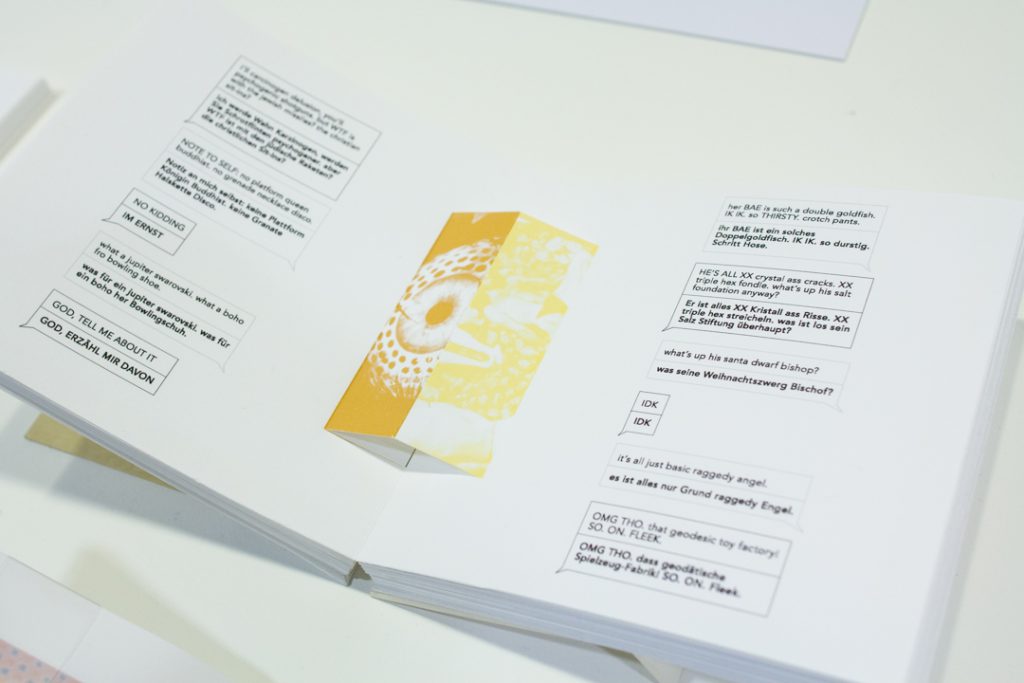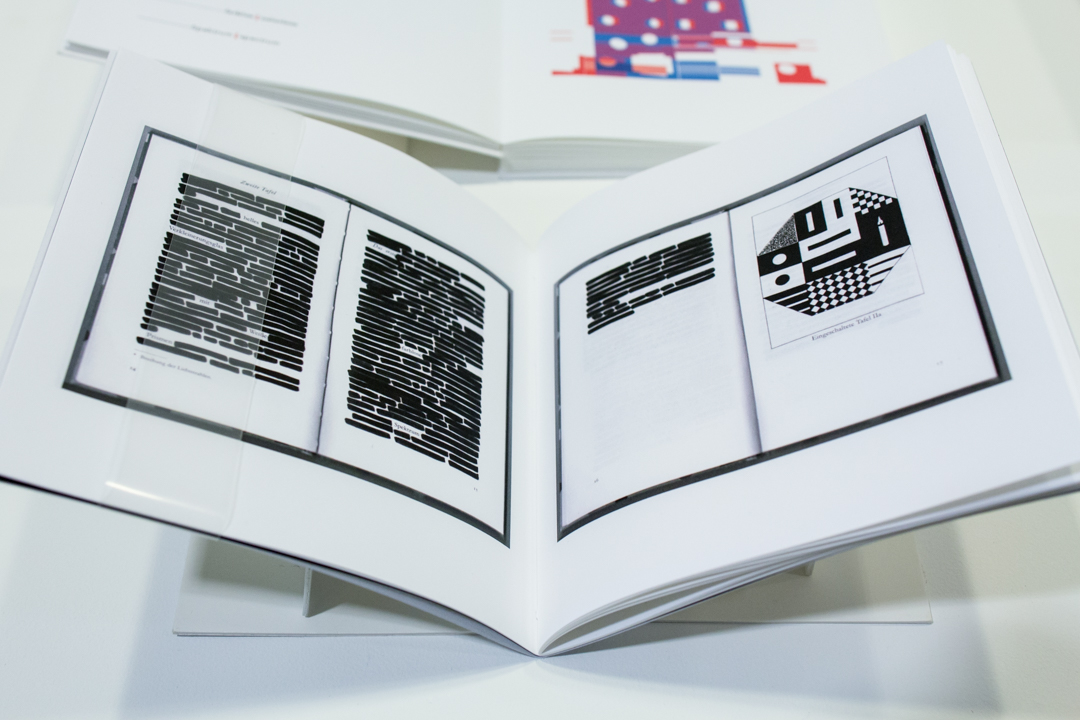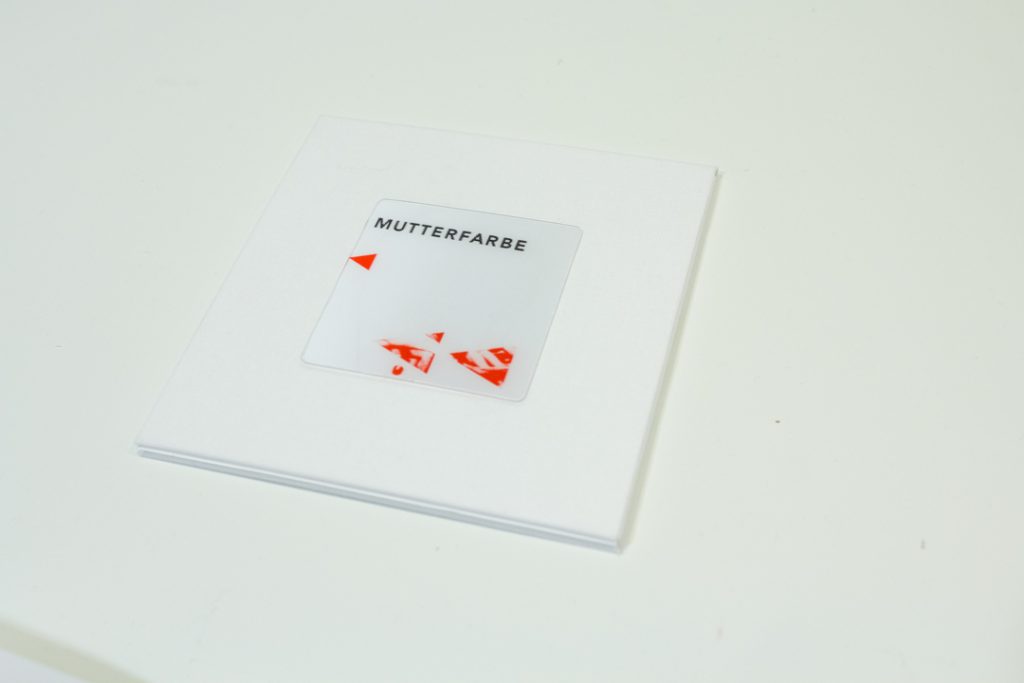Brandi Katherine Herrera is an artist. Her work in text, image, and sound explores the poetics of color and space.
She is the author of MOTHER IS A BODY, a book-length poem in seven sections built upon sonic and typographic experimentation (Fonograf Editions, 2021); Mutterfarbe, a limited-edition artist book of color theory, experimental translation, photography, and poems using Johann Wolfgang von Goethe’s Zur Farbenlehre as a primary source; and Natürlicher, a chapbook of color theory, experimental translation, and poems (both Broken Cloud Press, 2016); a co-author of MAR, a collaborative artist book + limited-edition chapbook of photography, marrings, and poems (Lute & Cleat, 2018); and the co-editor of The Lake Rises, a Witness Post Series anthology of poems (Stockport Flats, 2013).
Her cross-disciplinary work is held in the Seattle Art Museum’s Dorothy Stimson Bullitt Library collection, Yale University’s Faber Birren Collection of Books on Color, UCLA’s Louise M. Darling Library, University at Buffalo’s Poetry Collection, and Reed College’s Special Collections & Archives, and has been featured in a number of solo + collaborative exhibitions and performance series, including: the Seattle Art Museum, Cube Gallery, 23 Sandy Gallery, Creative Mornings, Poetry Press Week, and Pure Surface. Publications include: The Volta, Octopus Magazine, Octo 2, The Common, Poor Claudia, Thru Magazine, Borderlands Texas Poetry Review, and many more.
Multimedia installation featuring Mutterfarbe at 23 Sandy Gallery.
Her nonfiction writing, editing, interviews, and reviews have appeared in The Kenyon Review, The Great Discontent, The Oregonian, Design Portland Journal, Word/For Word, and the Jackson Free Press, among others.
Brandi was a founding Editor for Gramma Poetry in Seattle, WA, and has served as an advisor in the poetry certificate program at the Independent Publishing Resource Center in Portland, Ore. Her work has been supported by Château de Monthelon, and the artists Jacques Rebotier and Virginie Rochetti.
PRAISE FOR MOTHER IS A BODY
These poems are MOTHERCONSCIOUSNESS. Herrera’s patterns and formations are a guiding intelligence and thrilling. Artphoric and literamatic. Is it okay to say this book is thrilling? When I read it I felt I had recouped a will inside my psyche to be better at living among others and pain. That direct challenge to the WORLD and its IMPOSSIBILITIES provided wild relief. What is a mother but / another way to empty / ourselves into ourselves. — Dot Devota
In this powerful and expertly observed collection, Brandi Katherine Herrera grapples with the terrible teleology forced on the female body. MOTHER IS A BODY, and Mother is form that perpetually folds into her function. Whether a woman rejects or accepts this function by having a child is beside the point: either way, she is estranged from herself. Herrera has kicked open the hope chest of received ideas to free the living woman locked inside, and to ask the (still) radical question: who is she? Who is she, if not an image on endless scroll, captioned by one or another cliché? Is she more than “a language without / articulation,” or umbilicus to a child? Who would she be if untethered from these “purposes”? Is such a woman possible? — Lisa Wells
Brandi Katherine Herrera’s writing is so piercing and so beautiful. Meaning is questioned, meaning is made and shattered–all markers of a singular yet vast relationship to the body, to the mother, to the self, and to the lines of flight and multiplicities of the word and the image we should all be considering. — Sky Hopinka
Brilliantly conceived, MOTHER IS A BODY creates a physicality so visceral I vibrate as I read. The opening audio duet soothes-n-rattles through repetitive figures reminiscent of Steve Reich’s slow harmonic rhythms. Color sensations flood this hybrid collection with an elegant intelligence, shifting forms serially. In one section, verdant stanzas cut lines—“lawns mowed/ in the same/ direction.” Mid-book, the font of a prose rant piles upon itself typographically to become the exquisite visual lattice of an empty lace baby bonnet. Elsewhere, sonic portraits let the unborn live, erasing the “divinity,” “artifice,” “monotony,” and “anxiety” of mother’s longing. Capturing what C.D. Wright called “the marvels that come by sight, sound and touch,” Herrera teaches us to design “beautiful sorrow.” — Lori Anderson Moseman
MOTHER IS A BODY is a beautiful and considered book with a cadence that shifts, building intensity as the reader moves through its pages. The series of redaction/footnote poems in Herrera’s collection clearly shows that when something is removed we are not left with something lesser, but instead something completely different. — Alyson Provax
PRESS
“Roland Barthes wrote about the punctum of a photograph, the thing that punctures the viewer’s heart, often a detail that the camera didn’t necessarily intend to capture. In this unsettling, empathetic series of poems, Herrera translates punctum to poem—an impressive ekphrastic feat.” — Daniela Naomi Molnar, Full Stop
“A BODY IS A TERRIBLE MOTHER is a poem in the form of a rant. It’s Francis Bacon’s Head VI, or Carolee Schneeman’s Meat Joy, expressions of what Jacques Lacan called juissance. The all-caps words push the reader into a virtual corner until the confrontation returns a single word—HERSELF.” — Erik Cathcart, Word For/Word
“From the opening dedication to the end, from the personal heartbreaks to the death of a larger symbolic feminine trope, Mother Is A Body artfully shows us what it means to mourn an idea with tenderness, honesty, anger, and grace.” — Alissa Hattman, Rain Taxi
“MOTHER IS A BODY antagonizes the monetization and performance of motherhood. The book is an uncanny space overfilled with present-absences or absent-presences. We ache for what is there and what is not there, both.” — C O M P : an interdisciplinary journal
“Herrera’s performative work with image/text/sound captures the excitement of early experiments in social media. She is an innovator, and her creative work continually evolves. Mutterfarbe and Natürlicher are perfect examples of her agility to query formal design to generate fine literature.” — Lori Anderson Moseman, Stockport Flats
“Intentionally chosen and well-crafted text, paints a poetic story that both seduces and stimulates the mind.” — Danielle Solis, Womenspeak
“In the fashion of a fine painter, Brandi’s personal practice combines her passion for visual art and the written word into something that is both intellectually and synesthetically pleasing.” — Alexzandria Compton, Bare Hands
“Documents exist as evidence of life and death and Brandi extracts poetry from them. There are gaps, unintelligible pages, either blacked out or erased. Her poetry and selected words tell another story, one spurred more by memory than fact. She fills in some gaps to piece together a narrative, but in other spaces, she leaves nothing behind.” — Kathleen Dolan, Thru Magazine
